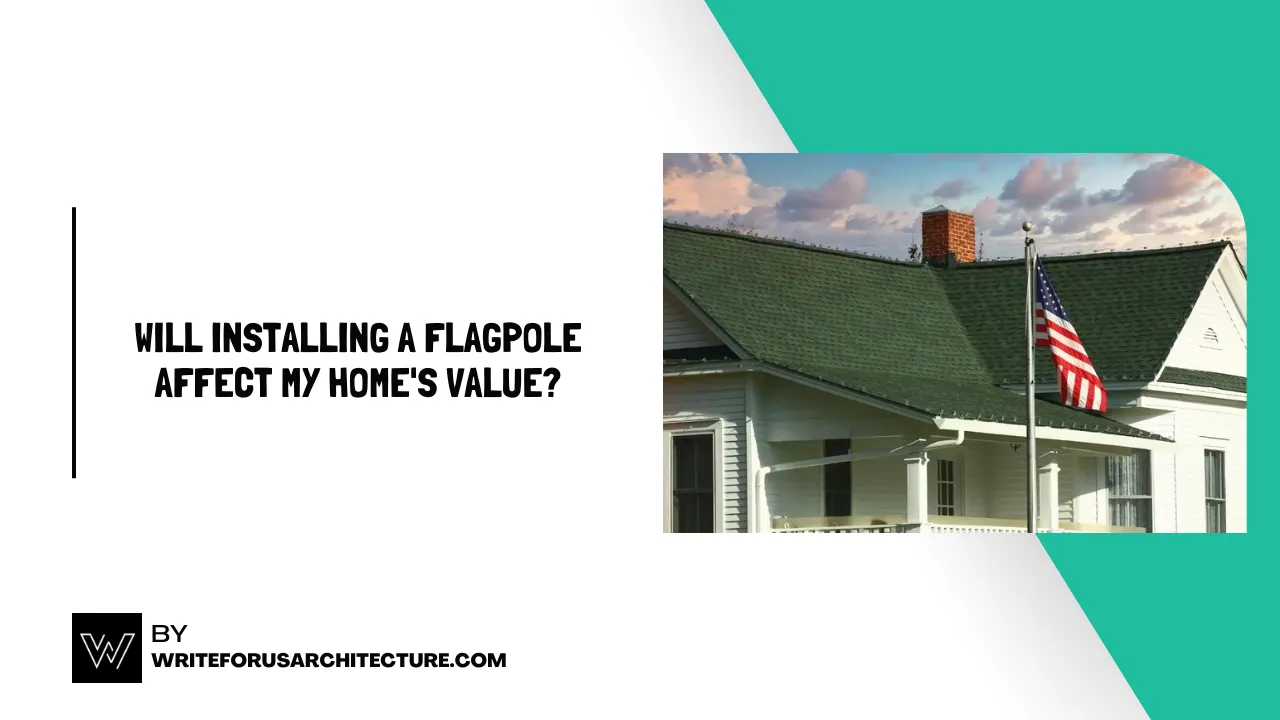When homeowners think about improving their property’s curb appeal or resale value, they usually consider landscaping, a fresh coat of paint, or maybe even upgrading the front door. But one question that occasionally comes up—especially among those who want to show pride in their country, military service, or even their favorite sports team—is: will installing a flagpole affect my home’s value?
It might sound like a small addition, but believe it or not, details like this can play a role in how potential buyers perceive your home. Let’s explore the topic in depth, covering not only the financial side but also the personal, aesthetic, and even community considerations.
The Symbolism of a Flagpole
First, let’s think about what a flagpole represents. For many people, flying a flag is a personal expression—patriotism, military service, heritage, or simply pride in one’s home. It can be a powerful visual statement, especially if the flag is well-maintained and displayed respectfully.
However, symbolism is deeply personal. What makes you feel proud and connected might not carry the same meaning for a potential buyer. In some cases, it could even create hesitation if the buyer feels differently about strong displays of personal identity. That’s why a flagpole is a unique home feature: it blends practical value (as a structure) with symbolic value (as an expression).
Does a Flagpole Add Monetary Value?
Let’s get to the heart of the matter: does a flagpole increase the market value of your home?
The short answer: rarely in a direct way.
Most appraisers and real estate agents agree that a flagpole is considered a minor exterior feature, similar to a birdbath, small fountain, or decorative lighting. It typically doesn’t add measurable dollar value to the property in the same way a new roof or an updated kitchen would. Instead, it contributes to perceived value—that intangible feeling of pride, elegance, or charm that helps a home stand out.
If the flagpole is tastefully installed, made of quality materials, and complements the style of the home, it could enhance curb appeal. A house with a neat lawn, attractive landscaping, and a well-placed flagpole might feel more welcoming than the same house without one. On the flip side, a poorly maintained or awkwardly placed flagpole could actually detract from the home’s attractiveness.
Curb Appeal: The Real Influence
Real estate experts often emphasize curb appeal because first impressions matter. According to several housing market studies, buyers form an opinion about a home within the first few seconds of seeing it. A flagpole, while small, can contribute to that impression.
Here’s how it could play out in real life:
- Positive impact: A sleek aluminum or steel flagpole installed in the front yard, paired with a fresh flag, neat landscaping, and good lighting, creates a polished look. Buyers may subconsciously associate the home with pride of ownership.
- Neutral impact: A simple flag bracket mounted by the front door with a modest-sized flag doesn’t make much difference, positive or negative.
- Negative impact: An old, rusted, leaning pole with a tattered flag can give the impression of neglect, which might make buyers wonder what else in the house hasn’t been maintained.
In other words, the flagpole itself isn’t what affects value—it’s the condition and presentation that matter.
Neighborhood Considerations
Another key factor is how the flagpole fits into the neighborhood. Homebuyers often look for properties that blend in well with surrounding homes. A tall, commercial-style flagpole in a neighborhood of modest ranch houses might stick out in a way that buyers don’t appreciate. Conversely, in communities where flagpoles are common, having one can make your home feel consistent and desirable.
If you live in a subdivision or HOA-controlled neighborhood, you’ll also want to check the rules. Some homeowners’ associations have strict regulations about flagpoles, including height, placement, and the types of flags allowed. Installing one without approval could not only hurt resale value but also lead to fines or mandatory removal.
Personal Enjoyment vs. Resale Value
One of the most important things to remember is that not every home improvement should be viewed strictly through the lens of resale. A flagpole is often more about personal satisfaction. If flying a flag brings you pride, joy, or comfort every time you come home, then the emotional value may far outweigh any small effect on the housing market.
When you do eventually decide to sell, you can always remove the flagpole if you’re concerned about how it might be received. Some homeowners even advertise it as an optional feature, allowing buyers to decide whether to keep it or not.
Practical Factors to Consider
If you’re seriously thinking about adding a flagpole, here are a few practical points that tie into property value and marketability:
- Material and Quality: Choose a durable flagpole made of aluminum, fiberglass, or steel. A flimsy or corroding pole won’t age well and could be seen as a liability.
- Placement: A flagpole should be positioned thoughtfully—usually in the front yard but not too close to driveways, sidewalks, or property lines. A symmetrical, balanced look adds to curb appeal.
- Maintenance: Buyers notice small details. A clean, upright pole and a fresh flag send a message of care and respect. A neglected flagpole sends the opposite message.
- Lighting: If you plan to fly a flag at night, proper lighting is not only respectful but also aesthetically pleasing. Subtle uplighting can even enhance the overall curb appeal of your home.
- Removability: If resale is a concern, consider a ground-sleeve installation that allows for easy removal. This way, you can take the flagpole with you—or give buyers the option of a flag-free lawn.
How Buyers Might React
The impact of a flagpole on potential buyers really depends on the individual. Here are a few common scenarios:
- The Proud Buyer: Some buyers will love it, especially if they share your enthusiasm for flag displays. For them, it’s a bonus feature that saves them the trouble of installing one.
- The Indifferent Buyer: Many buyers won’t care much either way. They’ll see it as part of the landscaping, and it won’t influence their decision.
- The Concerned Buyer: A few might see it as a maintenance issue or worry about neighborhood rules. In rare cases, they might feel uneasy if the symbolism doesn’t align with their values.
Because reactions vary, a flagpole is best viewed as a neutral-to-slightly-positive feature rather than a guaranteed value booster.
The Bottom Line
So, will installing a flagpole affect your home’s value? The honest answer is: not in a major financial sense. You won’t see a significant increase in appraised value or asking price simply because you put up a flagpole. However, it can influence buyer perception, which plays a subtle but important role in how quickly your home sells and how appealing it feels compared to others.
If done tastefully, a flagpole can enhance curb appeal, reflect pride of ownership, and create a welcoming first impression. If neglected or installed awkwardly, it can have the opposite effect. Ultimately, the biggest value of a flagpole is often personal—the satisfaction of flying a flag that represents your pride, heritage, or passion.
Also Read:

